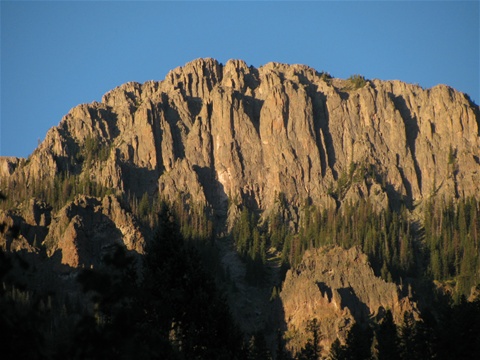a study of middle eastern fanaticism
Turmoil continues in the Middle East as the Western world wonders why...and why "those people" lack the West's desire for democracy. It seems that very few of today's political leaders understand or even have reviewed the history of the Middle East over the past 200 years. We in the west really had very litle interest in their affairs until trade became a factor (resulting in the Suez canal) and oil was discovered and exploited. The British and French should certainly recall the activities of their governments and it's representatives during the tumultous 1800's. Americans, on the other hand, were blessed with the ignorance that an ocean's distance provided.America did, however, have a somewhat similar experience when dealing with tribes and the assimilation of same into a modern society....or did we? It doesn't take much imagination to look at the various factions fighting in the middle east, the Sunni, the Shia, the Kurds, and put an American face on them, calling these "Indians" the Apaches, the Comanches, the Sioux, all of which are our American terms for the tribes rather than what they call themselves. We call the middle eastern people Muslims, yet they refer to themselves by their tribal names, Sunni, Shiite etc. Did the American indian assimilate in toto or did they end up with their own tribal lands? Yet we in the west insist that some form of a democracy "free the people" in the middle east. As I have said before, a true democracy will never work as long as tribal mentality exists in the middle east. The best we could ever hope for may be a Swiss form of government with cantons.
Why have many in the middle east chosen a life of fanaticism? This is the fundamental question that perplexes modern society. After recently reading a biographical narrative of those involved in discovering the source of the Nile River ( The White Nile by Alan Moorehead), I accidentally began to finally understand what may be the underlying source of the Muslim fanatics. I will try to paraphrase some of what I read and wish to give credit to Mr. Moorehead for his insight.
'Perhaps it is the very austerity of life in these arid wastes that predisposes the people to worship...and the Prophet Mohammed himself lived and received his inspirations in just such an environment as this. An immense silence possesses the surrounding desert. The heat is so great it stifles the appetite and induces a feeling of trance-like detachment in which monotony dissolves into a natural timelessness, visions take on the appearnce of reality, and asceticism ( * severe self-discipline and avoidance of indulgence for religious reasons) can become a religious object of itself. THESE ARE IDEAL CIRCUMSTANCES FOR FANATICISM, and a religious leader can arouse his followers with a devastating effect...barriers are swept aside, revolt becomes a holy duty. It can be a shocking,uprooting thing because it makes so sharp a break with the apathy that has gone on before. The long silence is broken, the vision is translated into action, and detachment replaced by a fierce and violent concentration. The uprising is RELIGIOUS, NOT POLITICAL. Early in 1881, the general air of unrest began to crystallize around a strange but dominate personality, Mohammed Ahmed Ibn el-sayyid Abdullah. He proclaimed himself Mahdi, or religious leader, of the area, following the true tradition of the warrior priests of Islam. The Prophet Mohammed had promised that one of his descendants would one day appear and reanimate the faith, and Abdullah now claimed that role. The fanatical tyranny of the Madhi in the desert in the 1880's followed a pattern not unlike the dictaorships in europe in the 1930's. It was merely cruder and more violent; atrocities were committed not in the name of patriotism, but of GOD ! Among their emblems were their flags, INSCRIBED WITH TEXTS FROM THE KORAN. There was but one honorable way to die and that was in battle in the holy service of the Mahdi. The Mahdi's notions of the world were extremely sketchy, but this was of no consequence as the desert was the only world these people knew. Battles followed with the wave of Mahdism spreading as though a dam had burst.'
Remarkable how these words, written in a historical context in 1960, ring true to the wave of fanaticism being spread throughout Iraq and Syria by ISIS. Do our leaders need to learn from the past? Undoubtly! The question is when will they realize that the current strategies will meet with failure unless we recognize the undeniable differences in our ways of life. Only time and the innate human desire to improve ones lot in life will change the minds to those stupified by their environment.

Latest comments
Well written Dennis!
French Southern Territories
backing up
transmitting